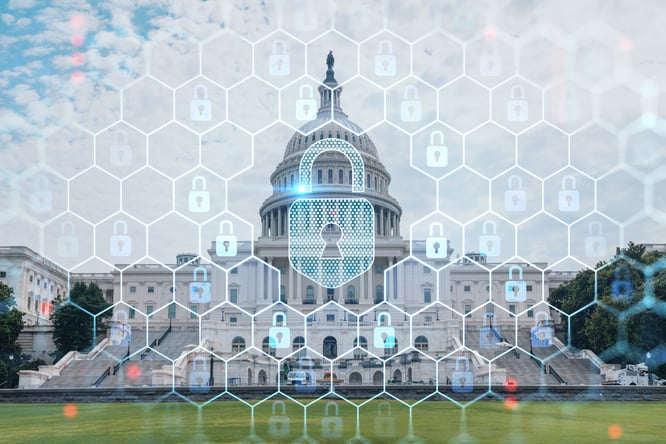4 min read
How C-Suite can go beyond the politics of ESG
4 min read
“I wish that we could go back to 15 years ago when I didn’t have to take a stance on political issues like ESG.” A Chief Legal Officer recently told me this and I imagine that it’s a shared, though rarely voiced, sentiment amongst many corporate leaders. Especially given the wider scope of responsibilities that these issues present. The reality is that the role of business has evolved.
Reliability and trustworthiness - what we could sum up as integrity - are front and center. This is what investors, employees, and customers want and expect, especially during times of increased market volatility. While challenging, this uncertainty demands greater innovation, creativity and collaboration, which will ultimately help us to come out better. There will be winners and losers, as we see with the recent FTX downfall and Elon Musk’s Twitter fiasco.
That’s why Wall Street, employees and regulators are demanding that companies take a stance on ESG issues and prove how they’re going to address them. They want to know how corporate leaders will ensure a more stable, equitable and sustainable economy. They want to trust them. A company's position on a wide set of ESG issues, like diversity and inclusion, climate action and compensation, is core to achieving that.
The challenge remains, of course, that ESG issues are many and complex. Marry that complexity with the competing and confusing demands from other market influencers - like politicians that debate the inherent value of ESG and others that enact laws requiring more ESG oversight and disclosure - and you have a perfect storm.
And while it may be nearly impossible to appease everyone, companies put themselves at risk by not taking these issues seriously. This ranges from missing out on investment opportunities, failing to attract the best ESG talent and ultimately, being non-compliant with law.
So, what can C-Suite do to maintain integrity and come out the other side of this even stronger? Here are three critical considerations to help take ESG out of politics.
Invest in a cross-functional team of experts
There’s a war on ESG talent in today’s market. Attracting and retaining the best talent requires bigger investments in people and the resources that they need to succeed - especially as more teams across the company become involved.
ESG is a transformational process, since many of these issues take different forms at different times. They don’t have a neat home within the company and they often require learning while doing. Consider climate action - you need accounting, risk management, data, disclosure, scientific and stakeholder engagement expertise to ensure a well-informed strategy.
This can happen only if companies bring experts in-house, create Executive/Board committees where these individuals can interact on a regular basis - and empower them with technology that promotes productivity.
The latter is especially important to create a clear line of sight on what issues matter most, justify how you got there and ensure that decisions are based on credible market intelligence. You need a systematic process to achieve this, otherwise you rely too heavily on subjective opinions and varied methodologies. That gets us to the next point.

Remove as much bias from the process as possible
A Board member explained to me that data helps them to take the emotion out of their decisions. That’s why we’re seeing a greater demand for data by Boards, investors and regulators when it comes to understanding ESG risks and opportunities and how companies plan to address those.
The data discussion goes beyond internal metrics like greenhouse gas emissions; it’s also about providing context and color to validate what you’re throwing resources at and why (i.e. process).
How you capture those insights matters just as much as the insights themselves. Traditionally, the process to prioritize issues - also known as materiality - depended exclusively on stakeholder engagement, word of mouth and desktop research.
There are inherent risks in this approach that include:
- Basing decisions off the loudest voice in the room
- Outdated information
- Having too many blindspots
- Getting stuck in analysis paralysis
- Greenwashing
Technology helps to improve both the quality of the insights and the process.
That’s why forward-looking Boards and Executives depend on technology to work better and strengthen integrity. They realize that it’s impractical to rely exclusively on secondary research, newsletters, conferences and investor calls to understand emerging risks and opportunities. Given current hard law developments, it’s also a liability. Let’s unpack that point a bit more.
Don’t wait for compliance
There’s a wave of regulatory uncertainty coming from EU and US developments. In the EU, the Corporate Sustainability Reporting Directive (CSRD) sets a new precedent for combatting greenwashing. This has implications for both EU and non-EU companies (you can learn more about that here).
At first glance, these implications focus on reporting - from increasing data collection to expanding audit engagements. This is forcing companies to rethink their reporting completely. But it’s not just about disclosure.
At the core of the CSRD, and other similar developments like the US SEC Climate Proposal, is a focus on governance. ESG issues now need to be treated with the same rigor as financial information, which demands stronger collaboration across teams. It comes down to trust, transparency and a willingness to think differently.
Fortunately, this change doesn’t have to happen overnight. There are ways to cut through the noise and see the smoke signals sooner. For instance, the CSRD and US SEC Climate Proposal are rooted in voluntary standards and initiatives that have existed for years, most notably the Task Force on Climate-Related Financial Disclosures. This trend is only continuing, expanding to issues beyond climate such as human capital and diversity.
Companies that keep a pulse on these emerging signals have a better chance of weathering the perfect storm that is ESG.

